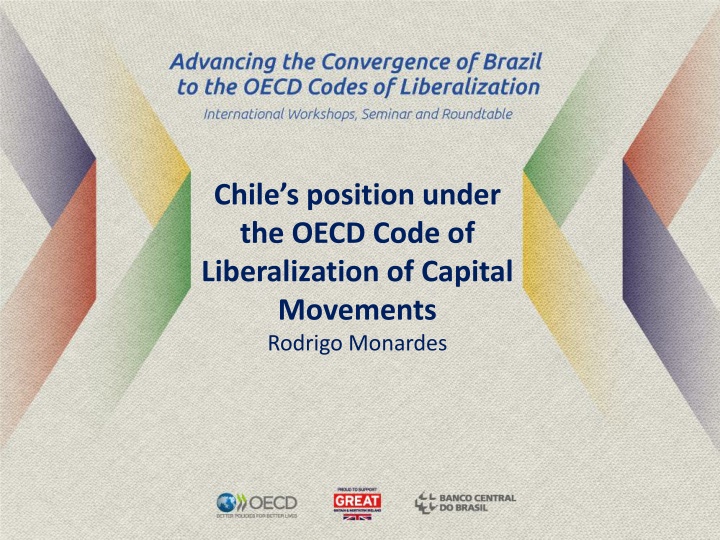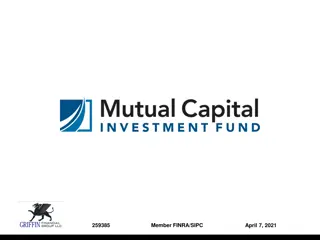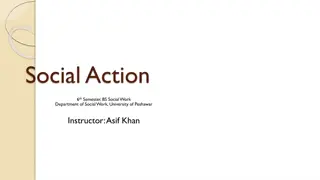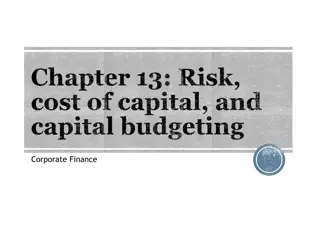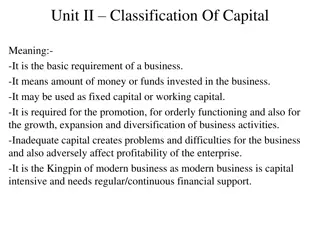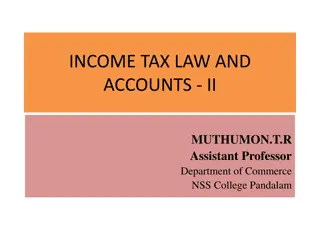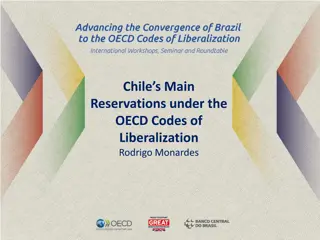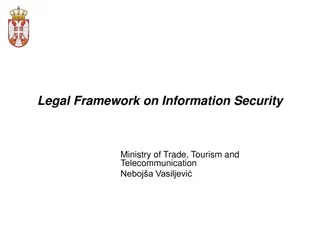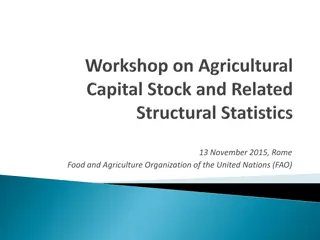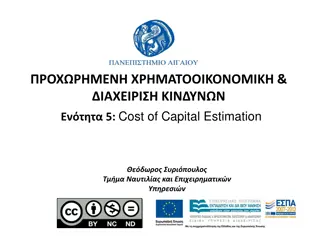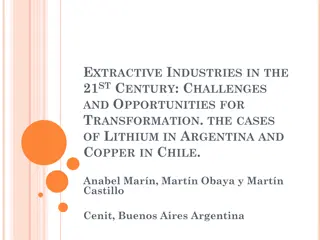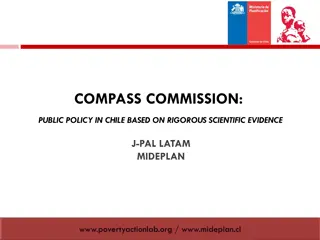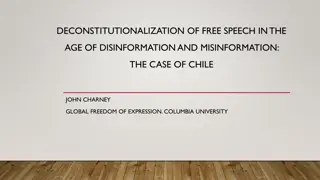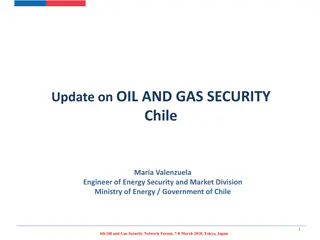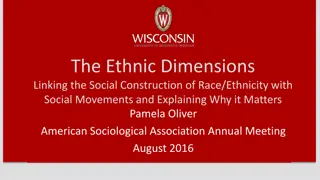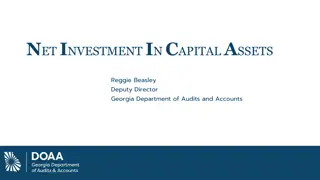Chile's Regulatory Framework for Capital Movements and Essential Security Measures
Chile's position under the OECD Code of Liberalization of Capital Movements is described along with its commitments in free trade agreements. The regulatory framework for capital movements in Chile allows for liberal participation of foreigners, with certain restrictions in sectors like air transport and broadcasting. Essential security measures are in place for real estate and mining activities, including limitations on land acquisition by foreigners and special regulations for mining concessions.
Download Presentation

Please find below an Image/Link to download the presentation.
The content on the website is provided AS IS for your information and personal use only. It may not be sold, licensed, or shared on other websites without obtaining consent from the author.If you encounter any issues during the download, it is possible that the publisher has removed the file from their server.
You are allowed to download the files provided on this website for personal or commercial use, subject to the condition that they are used lawfully. All files are the property of their respective owners.
The content on the website is provided AS IS for your information and personal use only. It may not be sold, licensed, or shared on other websites without obtaining consent from the author.
E N D
Presentation Transcript
Chiles position under the OECD Code of Liberalization of Capital Movements Rodrigo Monardes
OECD Codes of Liberalization Context of Chile s accession to the OECD Free Trade Agreements, including Services, Investment and/or Financial Services chapters Liberalization commitments and Market Access Negative list and consolidation of the degree of openness at international level.
Capital movements Regulatory Framework In Chile, for inward direct investment there is no horizontal restrictions. Liberal approach to the participation of foreigners in the economy, no screening mechanism. The principle of National Treatment included in chilean legislation Certain restrictions to some operations and incorporation requirements Limits on foreign ownership for: air transport, maritime transport, radio-broadcasting and fishing vessels
Capital movements Regulatory Framework National security measures related to land acquisition in certain geographical areas and some minining activities. Some restrictions on the currency denomination for foreign securities limits issuance in pesos Restrictions on portfolio investments abroad by securities Limits on the share of total assets by institutional investors investing abroad
Essential Security Real Estate : Two measures that limits the acquisition of land by foreigners: Sale of state-owned land restricts purchases by foreigners within 10 kms. Along the borders and 5 kms. Along the coast, requires authorization by the Ministry of Defence. No reservation needed given that the measure falls outside of the scope of the Codes Acquisition or lease of land in border zones by persons or enterprises of neighbouring countries (Argentina, Bolivia and Per ) Chilean residents are generally free to consume and contract financial services abroad. Measure based on public order and essential security considerations, listed for transparency, no reservation needed under the Codes.
Essential Security Mining : Mining activities in certain parts of the country and/or for certain products is not subject to the general mining concessions regime. In these cases, they can only be executed by the State or a SOE or by means of a special contract and administrative concession. Exploration and exploitation of hidrocarbons, lithium and uranium Mining products in seawaters part of national jurisdiction and areas categorized as of national security
Essential Security Mining : The conditions and requirements for the special concessions or contracts are to be determined on a case- by-case by a Supreme Decree of the President. A degree of discretion in the granting of these contracts. Broad scope of the measure including national security as well as strategic industry considerations Notification for transparency for essential security (narrow reservation) Lodge a reservation under item I/A regarding the non- competitive process for the granting of these non-judicial mining concessions
Essential Security Energy : The production of Nuclear energy is reserved to the Chilean Nuclear Energy Commision. The CNEC may set the conditions for privates entities to participate in joint projects. No reservation lodged under the codes, because it was listed for transparency based on public order and essential security considerations.
Non-Discrimination principle under the Codes Article 8 and 9 of the OECD Codes of liberalization establishes the principle of non-discrimination: A Member shall not discriminate as between other Members in authorizing the conclusion and execution of transactions and transfers which are listed in Annex A and which are subject to any degree of liberalization. (Article 9 CLCM)
Non-Discrimination principle under the Codes The principle of non-discrimination does not allow any type of exceptions and all adherent to the codes shall be treated in the same manner. At the time of accession Chile had reciprocity measures in some sectors which was not possible to lodge a reservation. Chile acknowledge the importance of the principle and committed to address the issue as follows:
Non-Discrimination principle under the Codes Insurance: Preferential treatment granted by Chile by means of international agreements regarding insurance to goods in international trade: To extent all OECD Members the preferential treatment granted Radio Broadcasting: The granting of concessions is limited to companies with no more than 10% of foreign ownership. However, exceeding the 10% limit is subject to reciprocity in which the authorities has to verify the treatment granted to Chileans nationals in the applicant s country of origin. Chile confirmed at their accession process that in the event that a more liberal treatment is granted to any adherent to the Codes, it would grant the same treatment to all adherents, regardless of the reciprocity requirement. Chile lodge a reservation under item I/A regarding the 10% of foreign participation.
Non-Discrimination principle under the Codes Fishing vessels : Only Chilean nationals or companies which nationals own more than 50% of the equity can register fishing vessels. The majority ownership requirement can be waived by the authorities, in the case of the countries on which the investor has the nationality, allows for registration of Chilean owned vessels. Chile confirmed at their accession process that in the event that a more liberal treatment is granted to any adherent to the Codes, it would grant the same treatment to all adherents, regardless of the reciprocity requirement. Chile lodge a reservation under item I/A regarding the majority ownership requirement.
Non-Discrimination principle under the Codes Maritime transport: Chile had the authority to withdraw the liberalization benefits from a trading partner that has closed its markets to Chilean participation. Chile agreed not apply this measures recognizing the standstill commitment under the codes.
Foreign exchange transactions under the Central Bank s authority and the Codes Current transfers and Payments: During their examination under the IC, Chile stated that under the Constitutional Act, the Central Bank has the right to impose restrictions on current payments and transfers and capital movements (as listed in their article 49). The Bank has the authority to impose the following restrictions to foreign exchange transactions, among others: Determine that credits, deposits or investments in foreign currency originating or to be sent abroad be subject to a reserve requirement. This measure may not exceed 40% of the respective transaction
Foreign exchange transactions under the Central Bank s authority and the Codes Current transfers and Payments: Since before the time of accession until today, Chile has no general exchange controls in place. No precautionary measures were lodged In practice, under their constitutional act, the restrictions applied by the Central Bank were limited, concerning only the issuance by non-residents of peso-denominated securities other than bonds. The few restrictions were reflected in reservations under items IV/B, V/B, VI/B, VII/B of the CLCM.
Foreign exchange transactions under the Central Bank s authority and the Codes Rights under the OECD Codes: No standstill obligation apply to operations included in list B and a reservation may be lodged at any time. Article 7(b) of the Codes stated the possibility of a adherent to withdraw the liberalization measure taken if it result in serious economic and financial disturbance. Article 7(c) of the Codes establishes that any adherent may temporarily suspend the application of measures of liberalization taken or maintained if the overall balance of payments develops adversely at a rate and circumstances, including the state of its monetary reserves, which it considers serious. Article 4 of the Codes recognized the right of adherent to introduce capital and exchange controls which may be requested by the IMF pursuant to Article VI of the Articles of Agreement.
Foreign exchange transactions under the Central Bank s authority and the Codes Conclusions: Chile expressed satisfaction regarding the balance of rights and obligations set forth in the Codes, as they provide adequate scope for handling disturbances to its economy and financial system. The elements explained previously, among others, were included as a basis for a declaration by Chile as part of its final statement on the international accession agreement between the OECD and Chile The IC noted and accepted this declaration on the basis that this statement shall not be construed as modifying Chile s rights and obligations undertaken under the Codes They also do not extend the scope of Chile s reservations.
Investment Abroad by institutional investors In Chile, institutional investors face maximum limits on the share of foreign assets in their portfolios. The measures concern all the items of capital outflows of the Code Insurance companies, housing funds, pension funds, retirement fund and unemployment fund Pension funds: the upper limits have been gradually revised upward (ceiling). Private pensions funds are the pillar of the mandatory social insurance system
Investment Abroad by institutional investors DL 3500 establishes that AFPs must conform with less restrictive of two limits: Overall limit of 45% on the share of foreign assets in a AFP portfolio Individual fund limits AFP may exceed the overall limit to the extend that the individual fund limits are respected. The individual fund limit may be exceeded to the extend that the overall limit is respected. 5 different types of individual pension funds: A to E (from greater to more conservative international exposure to risk) For each type of fund the Central Bank sets an upper limit within the bounds establish by law
Investment Abroad by institutional investors Rationale: the limits on foreign investment by institutional investors respond to concerns regarding the stability of these intermediaries and their role in fulfilling public policy objectives Foreign investment by pension funds has brought greater diversification to domestic portfolios, which is relevant for the management of long-term investment, as they are managers of the mandatory pension system. Gradual liberalization taking into account the capacity of the supervising authority and the potential macroeconomic effects, as the assets managed by AFPs represents 60% of Chile s GDP.
Investment Abroad by institutional investors In order to reflect these measures reservations were lodged in under items IV/D1; V/D1, D3;VI/D1, D3; VII/D1; VIII/B; IX/B of the CLCM. For simplicity purposes the reservations regarding pensions funds reference the limits set up by the law. The limits set up for the retirement and unemployment fund are the same for the individual fund E of AFPs. The limits for managers of housing funds are 30% in foreign assets of the total of assets under their management. The Central Bank set the limit for insurance companies technical reserves between a range of 10% and no more than 20%
